Description
Ralph Adamo
ISBN 978-1-935084-55-6
102 pages: $16.00
November, 2014
Ever is a collection of poems begun at the turn of the 21st century, composed and revised through the beginning of the year 2013. In this, his 7th collection and his first following Waterblind: New & Selected Poems (2002), Ralph Adamo writes about and through wars, hurricanes, issues as common and profound as work and time, and endurance of every sort. He writes as well as about becoming a father after age 50 and raising two children in a time of transition and conflict. The patterns and forms of these poems vary from tightly controlled couplets through prose poetry and various experimental turns of language. At times painfully lucid, at times opaque, often simultaneously personal and universal, Adamo’s poems seek that most elusive goal: truth as far as language can pursue it, and while truth may remain unfathomable and inexpressible, these poems never waver in their seeking.
An I relays the story in its not-story way. With traces of story. The sound is uniquely of its city in a nearly, not-named way. Attuned to its humidfied breezes and the fan blade’s indispensable turning. Home is the sole locale, the nucleus, ever so. The voice struggles ‘to end its own noise,’ not to inventory only regrets and losses, rattled and battered; cycling through the dead, friends and kin, pictures, ‘the stalactites of memory’ and bars in which years must have passed, stumbled through, a survivor, “godly,/of one mind, learning too late whatever/was on offer, outlasting fabulous destinies…” A work, a worksong, not of an illusory life, but of a life, in a body, a family, on wheels, rubber-side down, that works, miraculously.
—C.D. Wright, author of One With Others, National Book Critics Circle Award winner.
Ralph Adamo has lived his three-score-plus years in New Orleans. To say that the poems in Ever are about that city of the dead, the dying, and the coming-to-be would be a great disservice. These are the poems of man who has become his city. To be sure, the jazz, the floods, the drunks, and the turbulence of despair are here, but they exist in the words of one who has absorbed them into himself. If “the blinked-smile the non-survivor wears / toward peace” describes one overwhelmed by it all, Adamo, ever looking forward, brings comfort, like words whispered in the ear of a drowsy child.
—R.S. (Sam) Gwynn, author of No Word of Farewell: Poems 1970-2000.
Reading Ralph Adamo’s poetry puts you in a courtly brooding world where the truth comes driving through the gloom like elegance. You picture him “standing absolutely motionless at a slight angle to the universe,” as E.M. Forster described Cavafy.
—Nancy Lemann, author of Lives of the Saints and Ritz of the Bayou.
For more than forty years, while “arguing words against / The constant threat: forgetting,” Ralph Adamo has published poems as original as any I know. In his seventh collection, Ever, in which sometimes “a word is as far from a fact / as fever can burn it,” a speaker whittles “the little lies down to / The nuance of perfect teeth in a closed mouth.” Another speaker whispers to his young children, “My children are exhausting” and “’riddle’ means ‘dark language’” in order to help spirit them to bed. In another poem, retrospection makes a speaker “sag like an old bookshelf and sigh like the door beyond it.” And in another, a speaker prays for adolescent boys in their lostness—“world without hearing, amen.” Such phrasings hint at greater recognitions to come—for instance, that poetry is “just listening to the world.” What may be most original and satisfying about the thirteen years of poems in Ever is that reading and rereading them is to experience the art and diverse craft of a master, one who would wince at the accolade and never accept it.
—Randy Bates, author of Rings: On the Life and Family of a Southern Fighter.
In Ever, Ralph Adamo has focused his poetic lens on the small moments that make life bittersweet and profound. Whether he is describing the banter of children at play or words uttered on a deathbed, Adamo puts the reader in the room and hands him a magnifying glass. The poet is asking us to watch life closely as it swiftly passes.
He gives very specific metaphors of pain, familiar to any New Orleanian “like stinging caterpillars down from ghostly cocoons en masse to prey on the bare feet of us all.” The book contains many precisely chosen words and well-considered passages. But he also offers some less concrete, more esoteric and slightly sardonic observations “Some things have always fallen through time and space to land god knows where.”
Adamo writes confidently about the value in dysfunction and skeptically about pure redemption. “I was going to get older someday. I was going to blame somebody.” Sometimes the work seems so personal that it should be reworked in the reader’s mind. In “Visiting the Marker, After the Flood,” the narrator asks “What did you expect to happen clawing through the chicken wire at the top of the 20th century.” To understand this poem about death and life, the reader must step back and watch the words flow past.
Adamo’s narrator laments the people who have disappeared without ceremony. He names them in a list broken by undisguised feelings – among them that he cannot properly remember all the names. But the spirits of the dead emerge and disappear throughout the book, allowing readers the experience of tangible and fleeting memories too.
Written in dense beautiful language, Ever is about temporal, conscious and self-conscious experiences. Underlying Ever is a question of whether we will find the perfect afterlife. This is a book without any neat, simple answers. Still, Adamo seems to be telling us that happily ever after, our Ever, is here.
—Fatima Shaik, author of Melitte and On Mardi Gras Day.

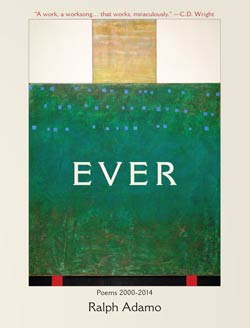
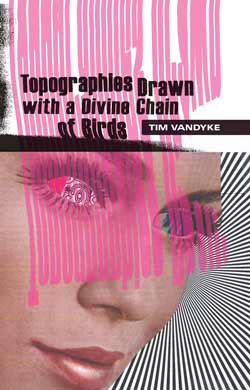
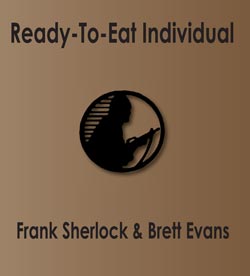
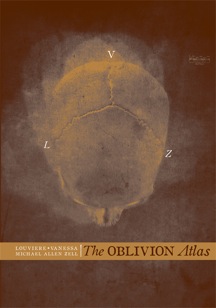
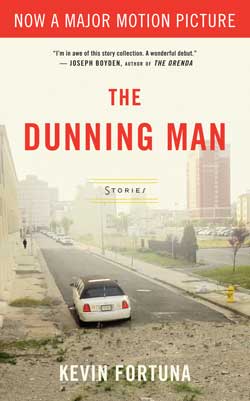

Reviews
There are no reviews yet.